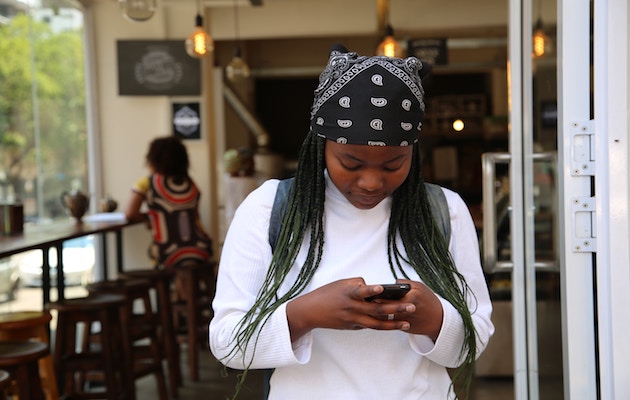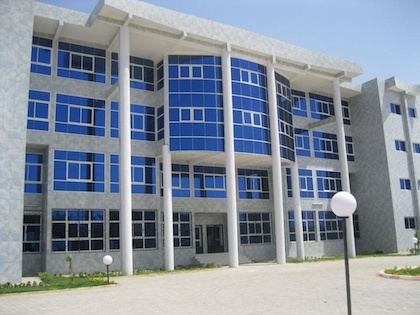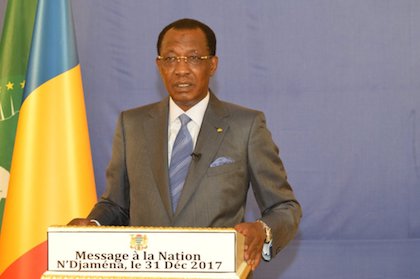Despite the violence of Islamist groups, “the coexistence between religious confessions is experiencing tremendous progress” in some parts of the country. The government is restricting internet, and freedom of speech.
 Only around 5% of the Chadian population has internet access. / Angelo Moleele, Unsplash CC
Only around 5% of the Chadian population has internet access. / Angelo Moleele, Unsplash CC
Last July, the Chadian population with Internet access was able to returned to the net after sixteen months of isolation. The service had begun to fail in March 2018, until a generalized blackout took place.
The government of President Idriss Deby has not given an official explanation. A comment on social media just announced the recovery of internet access. “I have ordered the competent electronic communication authority to immediately remove all restrictions on access to all social networks”, the president said.
J“instruis les services compétents en matière de communication électronique à l'effet de lever immédiatement toutes les mesures de restriction d'accès à tous les réseaux sociaux.
— Idriss Deby Itno (@IdrissDebyI) 13 de julio de 2019
CENSORSHIP MANEUVER?
However, the organization Internet Without Borders (ISF), defined this as a “censorship maneuver” by Deby.
“The restriction of social media has further tarnished the image of the Chadian government. President Déby seems to have realized his mistake, ordering the lifting of this censorship. Hopefully this does not happen again, online freedom of expression is a right”, ISF representative in Chad, Blaise Noubarassem, argued.
DEBY, PRESIDENT SINCE 1990
Idriss Deby has been President since 1990, after a coup against Hissène Habré, who is known as ‘the African Pinochet’ and was sentenced to life imprisonment by the International Criminal Court for crimes against humanity. Deby has won the last five presidential elections, the last one in 2016.
The last parliamentary elections in Chad were held in 2011. They have been postponed three times, from 2015 to 2018, then to 2019, and finally being set for the first quarter of 2020.
“Pray for the political government, which seems to become a dictatorship”, Tchingweubé Yassang, a representative of the integral mission for the Process of Mobilization of the Church and the Community of Chad (PMEC in French), told Spanish news website Protestante Digital.
INTERNET LIMITATION
According to World Bank data, only 6.5% of the population of Chad had access to the internet in 2017. A figure that would have even declined in recent months to 5%, a report published in January this year by the We are social platform, informed.
Although there are other countries in Africa with lower availability of internet services, Yassang said that “Chad is the African country with the least services in new information and communication technologies”.
“And social media is even worse. It is also subject to systematic controls. Internet is a luxury”, he added.
 The buiding of Sotel Chad, the state communication provider. / Makaila
The buiding of Sotel Chad, the state communication provider. / MakailaIn order that the reader can get an idea of how difficult it has been to contact a Christian source in the country, the Protestante Digital report began between the end of August and the beginning of September, and the author did not receive Yassang's responses until the beginning of November, via Facebook, first, and by email later.
In addition, other evangelical Christian organizations in the country were contacted, such as the Young Christians Union of Chad (equivalent to IFES), the Bishop of the Church of God in Chad, Amane Mamate, and the Evangelical Church of Chad; without getting an answer from any of these sources.
RELIGIOUS COEXISTENCE
According to Joshua Project, 57% of Chadians consider themselves Muslim, while 26% are Christians, of which 7.6% are evangelicals.
“Christians are a majority in the south, where we live with the followers of ethnic religions. It is rare to find Christians from the center of the country to the north, east and west. The Constitution enshrines the secular character of the State”, Yassang pointed out.
He explained that “since he came to power in 1990, Idriss Deby drafted a basic draft law enshrining the secularism of the State, to which religious pluralism has been added. The different confessions have a dialogue platform for peaceful coexistence that is recognized by the State”.
“The coexistence between religious confessions is experiencing tremendous progress. Despite these efforts, failures can be seen here and there”, he added.
 Idriss Déby has been president since 1990. / Twitter @IdrissDebyI
Idriss Déby has been president since 1990. / Twitter @IdrissDebyI“WE PAY A BLOOD PRICE”
However, ethnic violence and the presence of radical Islamist groups, such as Boko Haram, jeopardize peaceful interconfessional coexistence.
“For the implantation of a church or an evangelization campaign we pay a blood price”, Yassang said.
Since August, the provinces in the east of the country have been in a state of emergency due to a wave of violent clashes, with at least a hundred dead and thousands displaced.
“PRAY FOR PEACE”
That is why Christian communities in Chad are praying for “peace between transhumant sedentary shepherds from the south, and farmers; for Sudanese, Central African and Nigerian refugees in Chad, and for the violent extremism in the Sahel area”.
“We also pray for the socio-economic crisis that has generated outcasts and brought vulnerable groups to begging”, Yassang concluded.

Las opiniones vertidas por nuestros colaboradores se realizan a nivel personal, pudiendo coincidir o no con la postura de la dirección de Protestante Digital.
Si quieres comentar o